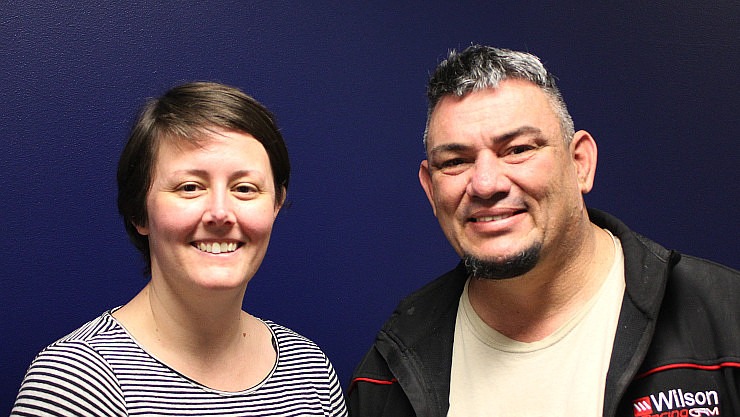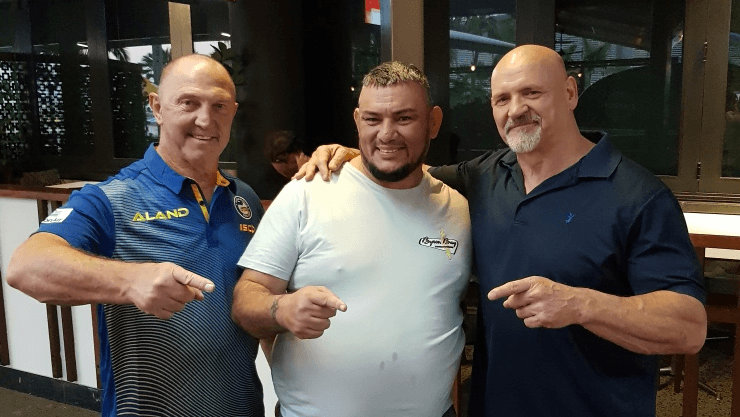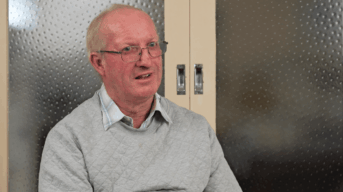
Solving the justice and reintegration puzzle
How can we better support people who have been in prison to be a part of the community again?
In June, CID’s Justen Thomas and Alison Bills went to the Reintegration Puzzle Conference in Darwin to talk about this question with lawyers, community workers and people from the justice system from all around Australia.
“It’s important that people with intellectual disability gain a voice at a justice conference like this,” says Alison.
“Nearly one in six young people in custody in New South Wales has a learning difficulty or intellectual disability. Most people in prison with cognitive disability have never received a disability service.”
Justen gave a talk to share his experience of the justice system. He showed a video he made with CID. (Watch the video and read about Justen’s story)
After his talk, lots of people came up to him to say thank you. They said they appreciated him sharing his story.
Justen enjoyed hearing from other speakers with lived experience of the justice system.
“It was an eye-opener,” he says. “There were a lot of people with lived experience speaking. They were quite brave.
“It’s brave to open up and speak about a lot of stuff in front of people. It’s very important and people want to hear about it.”
Another person who shared their experience was a woman from Darwin called Rocket. She talked about the importance of housing. She said many women in Darwin wouldn’t end up in prison if they had housing. And she said women wouldn’t go back to prison if they had housing after they were released.
“Rocket got a standing ovation,” says Alison. “I’ve never seen that at a conference like this before. It shows how hearing from people with first-hand experience of the justice system – like Justen and Rocket – can really make a difference.”
Justen and Alison also enjoyed hearing from people from Aboriginal and Torres Strait Islander communities. They said it was important that the police and the courts talk to other services and people in the community.
They also said it is important for Aboriginal people to be in control of how things work in their own communities. It does not help if people come in from outside and want to do things in a way that is not accepted by Aboriginal people or supported by community elders.
“The sorts of issues raised by Aboriginal speakers were similar to those in the disability community,” says Alison. “Better communication between government agencies and community services, and ‘nothing about us without us’.”
Justen was surprised by how many people came up to ask about the NDIS.
“The NDIS is just starting in some places like the Northern Territory,” he says. “So lots of people wanted to hear from us how it is going in New South Wales.
“We told them there have been problems for people who are in prison trying to access support services and get onto the NDIS.”
“It was good that we could help them prepare for the NDIS.”
An unexpected highlight of the trip for Justen was meeting two rugby league legends Brett Kenny and Eric Grothe.

About the conference
The Reintegration Conference runs every year. At the conference people from all over Australia talk about ways to make the criminal justice system better, so that fewer people end up in prison and fewer people who have been to prison end up going back.
Justen was supported to attend the conference by CID and by the Reintegration Puzzle Conference.
Data on intellectual disability and prison in NSW
- 17 percent of young people in custody possibly have an intellectual disability.
- Estimates of the rate of intellectual disability among prisoners range from 8 to 20 percent.
- The majority of people with cognitive disability who have been in prison have not accessed a disability service.
Data sources are listed below.
Data sources
- 2015 Young People in Custody Health Survey, 2017, Justice Health & Forensic Mental Health Service and Juvenile Justice NSW.
- Towards a just system: mental illness and cognitive impairment in the criminal justice system, 2017, Mental Health Commission of NSW.
- People with Intellectual and Other Cognitive Disability in the Criminal Justice System, 2012, Baldry, Dowse and Clarence, UNSW.



 1800 424 065
1800 424 065 














